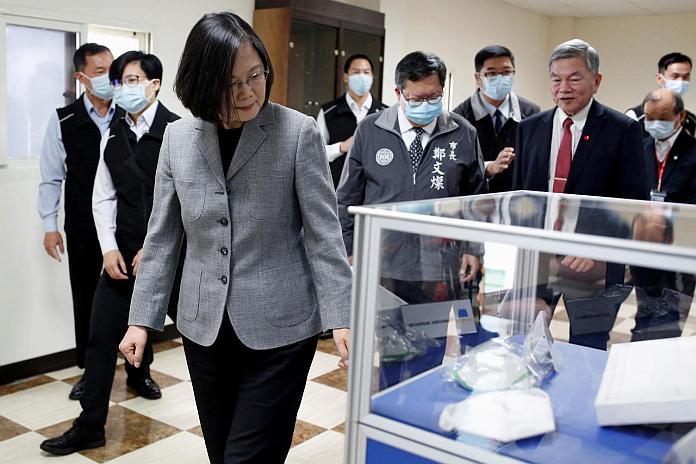TAIPEI, Taiwan, (Reuters) – The World Health Organization (WHO) has not shared with member states information Taiwan has provided on the coronavirus including details on its cases and prevention methods, Taiwan’s Foreign Ministry said on Monday, ratcheting up its complaints.
Taiwan’s lack of membership of the UN body, due to Chinese pressure which claims the island as its own with no right to the trappings of statehood, has infuriated the Taiwanese government during the outbreak of the virus. Taiwan’s government has said that keeping it out of the WHO during the outbreak amounts to playing politics with Taiwanese lives, even as the island has won plaudits for keeping its case toll so comparatively low thanks to early detection and control methods.
Both the WHO and China say Taiwan has been provided with the help it needs.
Taiwan last week said the WHO ignored its questions at the start of the coronavirus outbreak, part of what it has long described as a pattern that puts it at risk because of Chinese pressure to exclude it from international bodies.
On Sunday, the WHO issued a rare statement about Taiwan, saying it was closely following the development of the coronavirus there, is learning lessons from how they are fighting it, and detailing how the WHO has been working with Taiwanese health experts.
In response, Taiwan Foreign Ministry spokeswoman Joanne Ou said the WHO needed to “continue to review and improve upon some unreasonable restrictions imposed on Taiwan based on political considerations”.
While Taiwan can report to the WHO via its International Health Regulations framework and can access information from WHO’s internal Event Information Site, the information Taiwan provides is not shared by the WHO, Ou said.
Since the start of the coronavirus outbreak, Taiwan has given the WHO all the information about its cases and prevention methods, but this has never been included in the WHO’s daily updated situation report, she added.
“Therefore, the health bodies of various countries cannot understand the current situation of Taiwan’s epidemic situation, preventive policies and border quarantine measures from the information provided by the WHO,” Ou said.
“This shows that what the WHO said in its statement that it is learning from all regions, including Taiwan, to share ‘best practices’ with the world, differs from the facts.”
Taiwan has also been excluded from over 70 percent of WHO technical meetings in the last decade, and for a key February meeting on the virus Taiwan experts were not allowed to attend in person, only online, she said.
The WHO includes Taiwan’s number of cases under those of China. Taiwan says this confuses other countries into believing its virus situation is the same as China’s when China has no say in the island’s health policy or virus-prevention methods.





